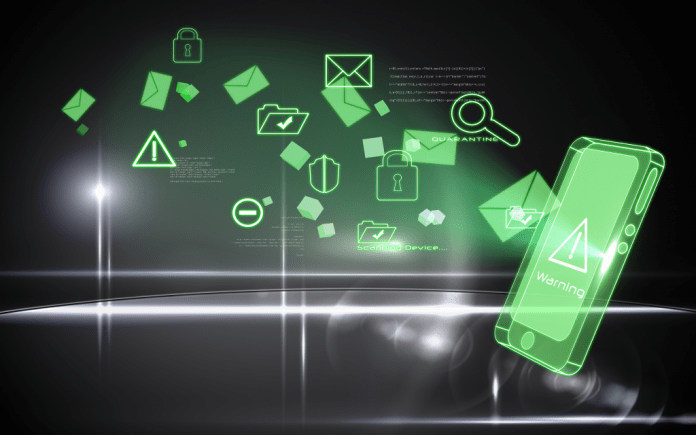Mobile devices are just as vulnerable to malware and other hacking attempts as a standard computer; in fact, these devices may be more vulnerable, simply because they don’t have advanced cyber security suites like computers and networks do. You absolutely must protect yourself, especially if you use mobile computing to conduct business, manage sensitive data, or handle any financial transactions. Even if you only use it to play games and talk to friends, it houses a lot of your identifying information which hackers could use to open credit card accounts or take out loans in your name.
1Never Use it to Transfer Files
Your phone isn’t a transfer device even if it can be used that way. A flash drive is a transfer device, and that’s the only way you should be transferring files from one device to another. Too many people are using their mobile devices, such as cell phones and tablets, to transfer, upload, and download files (music, videos, documents, etc.). If you want to ensure your mobile is protected, you won’t do this. You’ll use flash key encryption instead, which is essentially an encrypted flash drive.
An encrypted flash drive has protections in place to ensure the data is safe and there’s no potential for viruses to corrupt the data. The same doesn’t go for your mobile, which doesn’t have that military-grade encryption. And, with all the sophisticated ways hackers are corrupting data, military-grade is more than necessary.
2Continuously Monitor Threats
Mobile security is available, but what your mobile phone providers offers may not be enough. These days, people are depositing checks with their phone, using their phones in place of credit cards, and signing up for things with their personal information. If you’ve got a Trojan or other malware on your phone, someone is intercepting this information. You need protection.
US News recommends that you download an app that continuously monitors threats, as well as has the power to quarantine threats if one is detected. There are many different types of software available like enterprise mobile security platform but there is a number of these apps available, so you have your pick. Just make sure you read the reviews to ensure the protection is legitimate and will work hard for you.
3Apply Strong Authentication
You need two-factor authentication (2FA). 2FA is a double login; essentially, you would use two methods to log in to your devices. Maybe you have an iPhone and use your fingerprint to log in. This is great, but you should consider also using a pin or password. When you want to download apps or files, or upload information, make your device require your password.
Here are some tips for choosing a strong password:
· Don’t use words or phrases that are personally identifying, such as a birthday or lover’s name.
· Make it a long one, at least eight to ten characters long.
· Use uppercase letters, numbers, and a symbol, such as an exclamation point or @ sign.
· Use a new password on each of your devices.
4Avoid Mobile Hot Spots
According to PC World, “Wireless networks are inherently less secure than wired networks.” Mobile hot spots aren’t wired; therefore, they’re less secure. Plus, anyone who has a device can connect to the network, which leaves it vulnerable to hackers.
Basically, don’t connect to public Wi-Fi unless you’re absolutely certain it’s protected. Hackers can replicate public Wi-Fi offerings and cause you to accidentally connect to their network because it so closely resembles the public one. This can happen at McDonalds, the airport, or anywhere else. Once you’re connected to the hacker’s network, your device is theirs to exploit.
5Only Download Apps from Trusted Sources
Just because an app looks safe doesn’t mean it is. Always read the reviews, and never download devices from outside your designated app market (Apple store, Google Play, etc.). These app markets are considered trusted sources because they guard against malware; however, things do slip through and there are plenty of apps designed simply to spam you with ads and collect your information.
Basically, if you follow the above mentioned advice, you should be fine. A mobile security app is easily your best measure to avoid security issues, but it won’t protect you if you accidentally open an infected file. Above all, update regularly and keep a watchful eye for the warning signs of security threats. If your gut says no, don’t download or open it.



